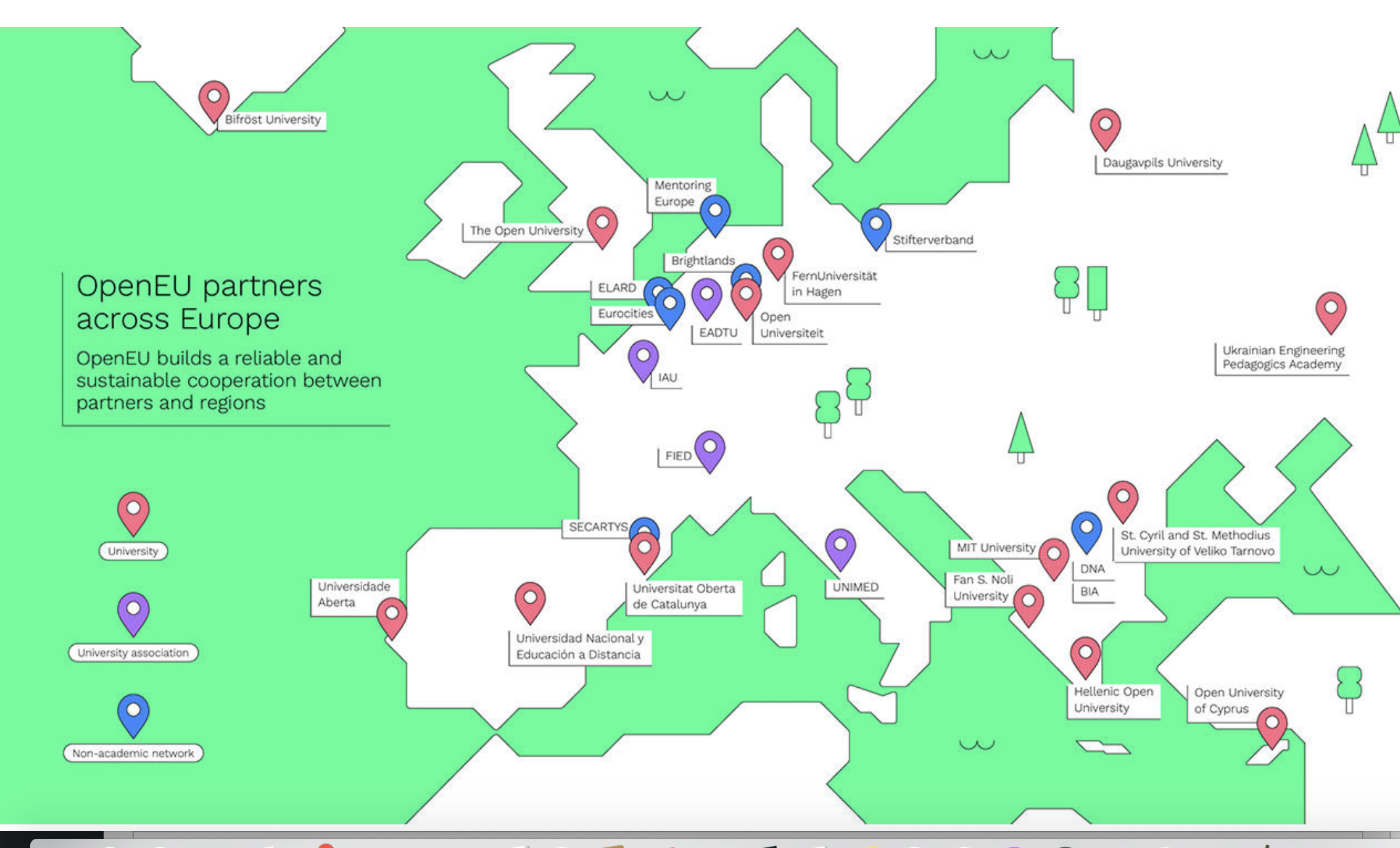
On the 28 June (2024) a proposal for an Open European College that’s “student-centred, inclusive, digital and inexperienced” has been supported by the European Fee with a grant of 14.4 million euros (practically C$21 million).
What’s the Open European College?
In the mean time, it’s primarily a collaborative association between eight nationwide and two campus-based open universities within the European Union:
The mission is being led by the Open College of Catalonia (UOC) in Spain. The opposite core members moreover UOC are:
- Bifröst College, Iceland;
- Daugavpils College, Latvia;
- FernUniversität in Hagen, Germany;
- Hellenic Open College, Greece;
- Open Universiteit, the Netherlands;
- Open College of Cyprus;
- Universidad Nacional de Educación a Distancia, Spain;
- Universidade Aberta, Portugal; Universitat Oberta de Catalunya, Spain, and
- St Cyril and St Methodius College of Veliko Tarnovo, Bulgaria.
Establishments from 4 different non-EU nations are additionally collaborating within the mission:
As well as, the next pan-European organisations will present their expertise and skill to publicize the outcomes obtained:
Futhermore the next organizations will collaborate within the totally different initiatives that OpenEU desires to develop:
Lastly:
will assist join the alliance’s initiatives with native wants.
What’s going to it do?
That’s tougher to reply from the publicity so far.
Its core mission is:
01
Set up a learner-centred, inclusive, digital and inexperienced open college with a European scope, widening entry to high quality increased schooling and lifelong studying to all.
02
Contribute to the digital transformation of Increased Training Establishments, supporting them within the integration of digital applied sciences for schooling, ensuing within the reinforcement and invigoration of the EHEA’s digital dimension
It has 10 targets to be achieved inside 4 years
- Construct the foundations of a stable and sustainable European open college.
- Promote innovation in curricula, course supply and evaluation, with a agency dedication to micro-credentials that may be stacked and result in official {qualifications}, equipping our learners with needs-based technical and non-technical transferable expertise.
- Develop lifelong studying for employability throughout Europe, by offering each conventional and non-traditional college students with tailor-made and versatile studying paths and the talents demanded by society and the labour market.
- Widen participation of historically underrepresented and deprived teams in increased schooling, equivalent to refugees and migrants, girls in STEM, disabled individuals, or these dwelling in underpopulated areas, rolling out options in response to their wants and strengthening competencies linked to variety, fairness and inclusion.
- Assure the standard of digital studying and modern academic options by way of challenge-based, multidisciplinary analysis and innovation.
- Drive the digital transformation of upper schooling in Europe, sharing OpenEU’s expertise, information and sources with different universities.
- Broaden internationalization by creating and implementing modern and versatile mobility choices that allow non-traditional college students profit from alternatives for worldwide studying experiences.
- Improve challenge-based information technology, switch and alternate, specializing in three key points for Europe: the digital transformation, the local weather emergency, and the threats to European values and democracy.
- Enhance universities’ societal affect in schooling, analysis and innovation by partaking with the OpenEU communities and the labour market to determine collaborations with non-academic companions.
- Foster European values by establishing a shared tradition in OpenEU that’s based mostly on the ideas of high quality, variety, fairness, inclusion, open information and environmental sustainability to contribute to extra resilient economies and societies.
My feedback
I’m 8,000 kilometres from Brussels, so all I’ve to go is the press launch from the Open College of Catalonia. This seems on the face of it an important motion in the direction of a single European Open College, nevertheless it additionally raises many questions, equivalent to:
- what’s the added worth of this initiative to what these establishments do individually in their very own nations? Particularly,
- will this initiative allow credit score switch and recognition of credentials throughout and between nations?
- the ten targets would appear applicable targets for every of the person establishments – what further worth will the alliance add to attaining these targtes?
- how will this initiative be ruled? Who will get to vote – and about what?
- how will it enhance entry for college kids past what every particular person establishment already offers?
Or are there different added worth advantages that can’t be gained by way of the person establishments concerned?
Sorry to ask these questions, however with out solutions this might properly be simply one other manner for senior managers to journey round Europe on bills. If anybody from the accomplice establishments want to reply these questions please reply to tony.bates@ubc.ca